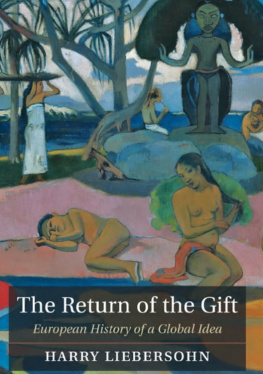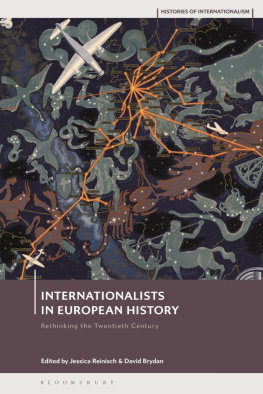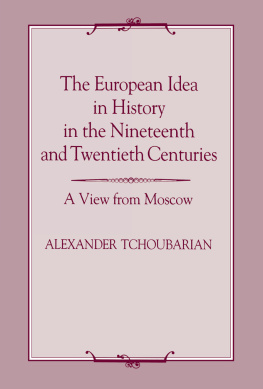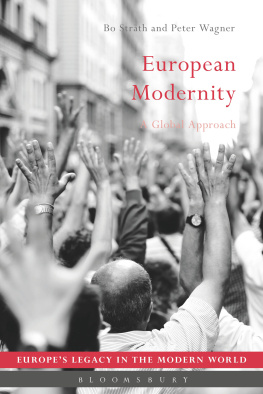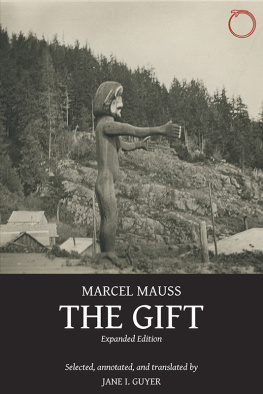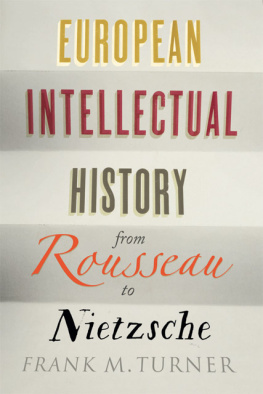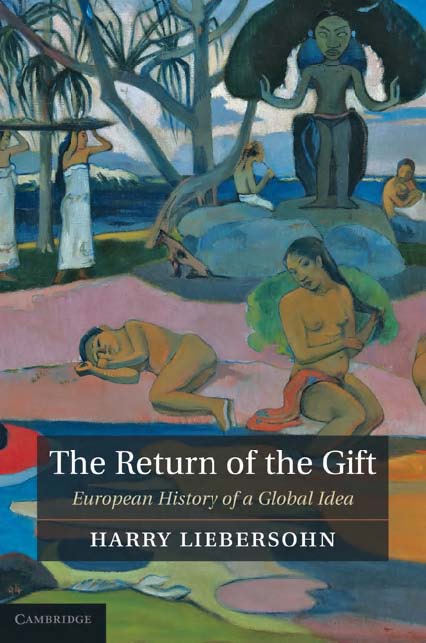This book is a history of European interpretations of the gift from the mid-seventeenth to the early twentieth century. Reciprocal gift exchange, pervasive in traditional European society, disappeared from the discourse of nineteenth-century social theory only to return as a major theme in twentieth-century anthropology, sociology, history, philosophy, and liter ary studies. Modern anthropologists encountered gift exchange in Oceania and the Pacific Northwest and returned the idea to European social thought; Marcel Mauss synthesized their insights with his own readings from remote times and places in his famous 1925 essay on the gift, the starting point for subsequent discussion. The Return of the Gift demon strates how European intellectual history can gain fresh significance from global contexts.
Harry Liebersohn is a professor of history in the Department of History, University of Illinois, Urbana-Champaign. He is the author of several books, including Fate and Utopia in German Sociology, 18711923 (1988); Aristocratic Encounters: European Travelers and North American Indians (Cambridge University Press, 1998); and The Travelers World: Europe to the Pacifi c (2006). His article Discovering Indigenous Nobility: Tocqueville, Chamisso, and Romantic Travel Writing, which appeared in the American Historical Review , was awarded the 1995 William Koren, Jr., Prize of the Society for French Historical Studies. Professor Liebersohn was a member of the Institute for Advanced Study in Princeton, New Jersey, in 19961997 and a Fellow of the Wissenschaftskolleg zu Berlin (Institute for Advanced Study, Berlin) in 20062007.
European Histor y of a Global Ide a
Harry Liebersohn
University of Illinois, Urbana-Champaign

cambridge university pres s Cambridge, New York, Melbourne, Madrid, Cape Town, Singapore , So Paulo, Delhi, Dubai, Tokyo, Mexico Cit y
Cambridge University Pres s 32 Avenue of the Americas, New York, ny 10013-2473, us a
www.cambridge.or g Information on this title: www.cambridge.org /978110700218
Harry Liebersohn 201
This publication is in copyright. Subject to statutory exceptio n and to the provisions of relevant collective licensing agreements , no reproduction of any part may take place without the writte n permission of Cambridge University Press .
First published 201
Printed in the United States of Americ a
A catalog record for this publication is available from the British Library.
Library of Congress Cataloging in Publication data
Liebersohn, Harry . The return of the gift : European history of a globa l idea / Harry Liebersohn . p. cm . Includes bibliographical references and index . isbn 978-1-107-00218-0 (hardback ) 1. Gifts Europe History. 2. Ceremonial exchange . 3. Anthropology Philosophy. I. Title . gt3041.e85l54 201 394.094dc22 201003131
isbn 978-1-107-00218-0 Hardbac k
Cambridge University Press has no responsibility for the persistence o r accuracy of urls for external or third-party Internet Web sites referred to i n this publication and does not guarantee that any content on such Web sites is , or will remain, accurate or appropriate .
To Carl Schorsk e
CONTENT S
Acknowledgments page ix
Introduction
. The Crisis of the Gift: Warren Hastings and His Critics Hastings and the Gift on Trial Edmund Burke on Hastingss Corruption of the Gift James Mills Emancipation from the Gift Ghulam Hussain on Britains Refusal of the Gift
. Liberalism, Self-Interest, and the Gift Hobbes and the Voluntary Gift Mandevilles Rejection of the Gift Adam Smith on Modern Liberality Friedrich List, German Economics, and the Turn to History Karl Bcher and the Making of Economic Anthropology Bcher and the Return of the Gift
. The Selfless Savage: Theories of Primitive Communism Adam Ferguson and the Rude Republic of Virtue Lewis Henry Morgan on Kinship and Community Engels and Marx on Primitive Communism
4. Anthropologists and the Power of the Gift: Boas, Thurnwald, Malinowski Franz Boas and the Kwakiutl Potlatch
vi i
Richard Thurnwald and Banaro Marriage Bronislaw Malinowski and the Kula Ring
. Marcel Mauss and the Globalized Gift The Community of the Gift: Mauss and the Durkheim School The Anthropology of the Gift in Oceania, the American Northwest, and Europe The Politics of the Gift and the Crisis of Postwar Europe
Conclusion
Notes Selected Bibliography Index
ACKNOWLEDGMENT S
The first draft of this book was written during my year at the Wissenschaftskolleg zu Berlin (Institute for Advanced Study, Berlin) in 20062007. I am grateful to Dieter Grimm, director during the fall semester, and Luca Giuliani, director during the spring, for their hospitality. I continued my research and writing during a stay at the Max Planck Institute for the History of Science, Berlin, in June 2008 and wish to thank Lorraine Daston, director of Section II, for her invitation to join the Institute during this time. Antoinette Burton as chair of the History Department at the University of Illinois approved an academic leave from teaching for the fall of 2009, permitting me to complete the book.
Audiences offered valuable criticisms of my ideas on gift exchange at the Philadelphia 2006 meeting of the American Historical Association; the Wissenschaftskolleg zu Berlin; the Forschungskolloquium Neuere und Neueste Geschichte (Research Colloquium for Modern and Contemporary History), University of Konstanz; the Berliner Kolleg fr Vergleichende Geschichte Europas (Berlin Seminar for Comparative European History), Free University of Berlin; the Institut fr Religionswissenschaft (Institute for the Scientific Study of Religion), Free University of
i x
Berlin; the Canadian Center for German and European Studies, University of Montreal; The Gift in History: Symposium in Honor of Natalie Zemon Daviss Eightieth Birthday, Radcliffe Institute, Harvard University; and the St. Louis 2009 meeting of the Society for French History Studies.
Friends and colleagues have deepened my understanding of gift exchange and its milieux from Polynesia to Paris. I especially wish to thank Jeffrey Bowman, Mario Bhrmann, Alice Conklin, Natalie Z. Davis, Peter Fritzsche, John Gascoigne, Thomas Head, Jrgen Osterhammel, and Vanessa Smith for conversations, com ments, and all that I have learned from their writings; in addition, I thank Vanessa Agnew, Philippe Despoix, Catarina Krizancic, and Mark Micale for commenting on individual chapters of this book. Two anonymous referees provided detailed, constructive criticisms of the manuscript that greatly aided my revisions.
My research was aided by archivists and librarians at many insti tutions. I particularly wish to thank Mary Stuart of the University of Illinois Library for her stewardship of the University of Illinois history collections and Anja Sommer, archivist of the Berlin Ethnological Museum, for guiding me through the museums archival holdings. The staff of the Institut Mmoires de ldition contemporaine (IMEC) did everything possible to make my visit to use Marcel Mausss papers comfortable and fruitful. I am also indebted to librarians and archivists who made original source materials available to me at the University Library, Leipzig, Special Collections; and the University of Rochester Library, Department of Rare Books and Special Collections.
My family Dorothee, Ben, and Jack brought zest to conversations about the gift as I researched and wrote; Dorothee helped at a critical late moment with finding the right title and pulling the book into a unifi ed whole.

